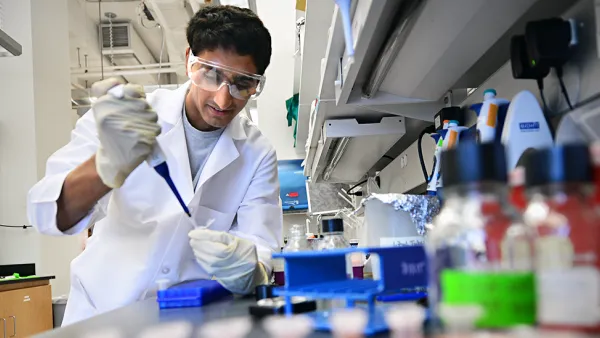Nurses can make terrific candidates for medical school. If you're working as a nurse or completing a nursing degree, you already have several strong advantages in preparing for a transition to medicine.
- You don’t have to wonder whether or not you like patient care.
You’ve already invested many hours at the bedside, and you know that patients can be grateful or resentful, reasonable or non-compliant. You've learned that a career in health care is rewarding to you, regardless of these challenges.
- You have a depth of clinical experience that is virtually impossible for traditional medical school applicants to acquire.
This can be one of the largest challenges for many pre-med students. As a nurse, you not only have valuable personal experience caring for patients, but you also have a network of professional contacts to call on if you want to shadow specialties you’re not as familiar with.
- You’ve got a head start academically.
As part of your nursing preparation, you took courses in anatomy, physiology, microbiology, and chemistry. It’s likely that you’ll have to repeat some of these courses, depending on the exact content and age of the course work, but familiarity with these subjects means they should come easily the second time around.
- You’re comfortable working as part of a team.
You understand the importance of working cooperatively toward a common goal, relying on colleagues, and communicating effectively. However, you may feel driven to become the leader of that team.
If you have a satisfying career in nursing, how do you make the decision to leave it behind? You may be curious to learn more about pathophysiology. You have lots of practical, applied knowledge about how to care for patients, but if you long to know more of the “why” behind care decisions, medicine may be right for you. If you often wish you could be more involved in decision making and care planning for your patients, medicine may be right for you. Share your ideas with physician colleagues you trust while you are in the decision-making process. Have candid conversations when possible about how they chose their profession and whether they would follow that path again.
“Don’t underestimate the opportunity you currently have to become a good clinician and build your nursing resume. The effort you put in now as a health care professional will be a great addition to your medical school application. The unique experiences available to nurses, such as building relationships with patients, families and the interdisciplinary team, are incredibly valuable in helping applicants stand out.”
– Dustin Armstrong, BSN, RN,
University of Missouri Medical School class of 2023
What are the next steps to making your career advancement goal a reality?
-
Make sure to maintain strong professional relationships as you plan your transition. When you apply to medical school, you’ll need a letter from a nursing supervisor verifying that you were successful as a nurse. Medical schools want to be sure that you could have continued in that field.
- Consider your academic options. The science course work required for nursing programs typically does not satisfy medical school prerequisites. You will most likely need to take the full slate of prerequisites, and so a structured post-bacc program is likely to benefit you.
- Improve or refresh your math skills before starting your lab sciences courses. Good working knowledge of college algebra will be necessary for chemistry. You may need a calculus background for physics.
- Look for ways to continue nursing on a part-time basis or as a volunteer when you return to school. Don’t undercut your greatest strength by stepping away from patient care.
- Read our “Six Tips for Changing to a Career in Medicine.”
Medicine may allow you to retain some aspects of patient care that you enjoy while expanding your scope of practice and gaining a much greater depth and breadth of knowledge. A key challenge you'll face when applying to medical school is articulating what you appreciate about the nursing profession but also why it may not be enough for you.
About the Post-Baccalaureate Premedical Program at WashU
The Post-Bacc Pre-med program allows students with a bachelor’s degree to either obtain their pre-health prerequisite course work or enhance their current science record to make themselves more competitive for medical school admissions. This well-rounded program not only helps you fulfill admission requirements, but it's tailored to your needs with a robust offering of courses; clinical and nonclinical volunteer opportunities; research opportunities; MCAT preparation; advising; and a supportive, active community that shares the same goals.



